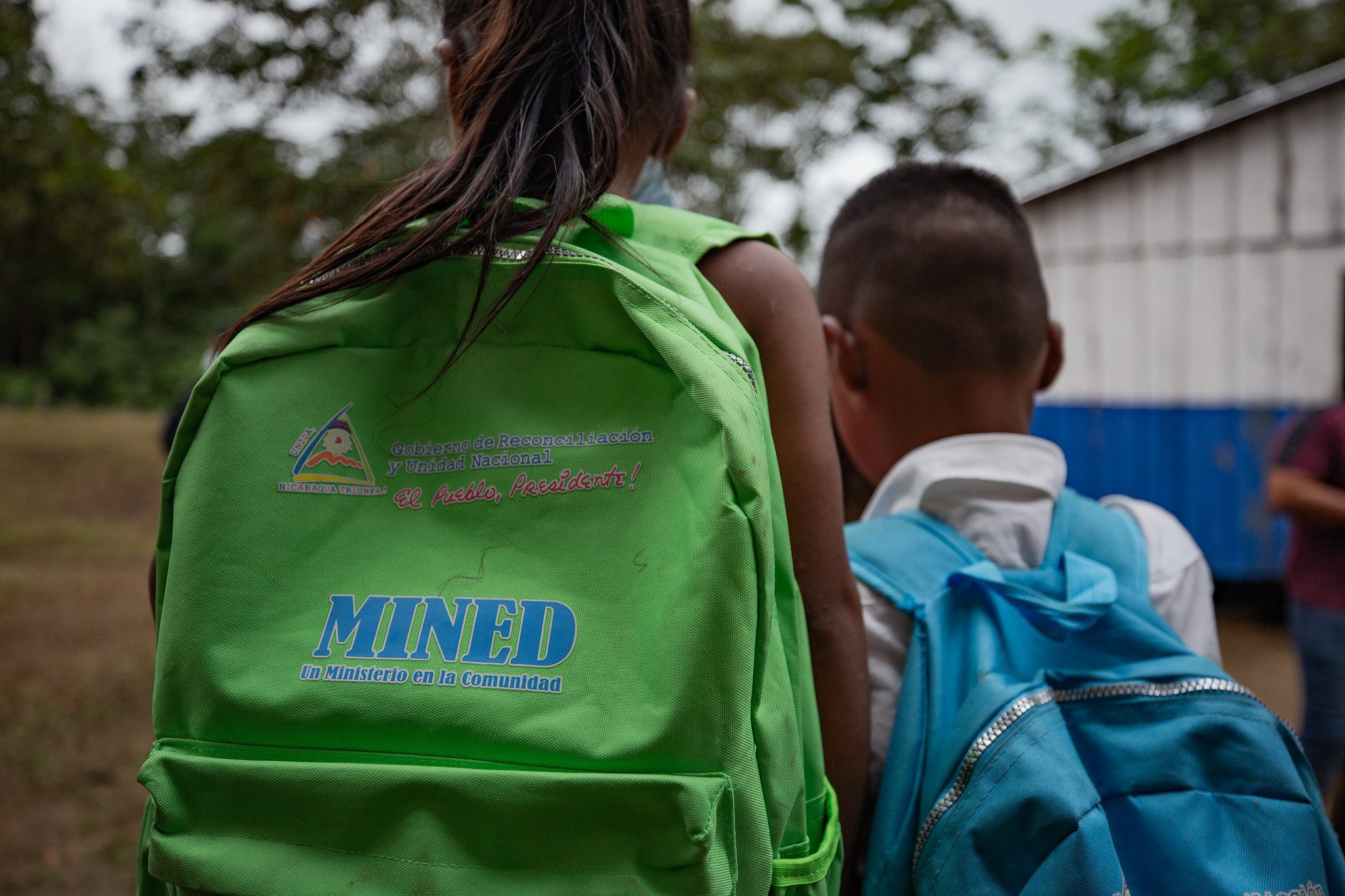The removal of the admission exam for public universities, the direct promotion of elementary and high school students to the next grade even if they don’t have the grades and knowledge to deserve it, and the “Zero Reds” program, are part of the regime’s step-by-step strategy to destroy the foundations of formal education in Nicaragua, in order to perpetuate its power through a family-like dictatorship, explained Ernesto Medina, professor and former rector of the American University (UAM) and the National Autonomous University of Nicaragua (UNAN-León).
“The fundamental requirement to perpetuate a dictatorship is to have unreasoning people, people with no critical capacity, people who have been deprived of the possibility of thinking, analyzing and discussing,” said Medina in an interview with DIVERGENTES from exile.
Through a series of investigations, we verified and explained how the Sandinista regime dedicated itself to destroying the fundamental pillars of education. The regime’s main strategy is focused on elementary and high school education, forcing teachers to pass students through evaluation systems that do not reward or promote educational quality in students.
Although the outlook for the country and for education is hopeless, the professor highlights the role that parents can play in the professional development of their children. Although it would be logical to promote measures to transform the current model, this is not possible because Nicaragua is in a dictatorship that so far has no expiration date.
“A parent has all the authority to say ‘look, something is not right here and we want to figure out how to solve it’. I believe that no one is going to be happy knowing that their child is not being properly educated, that they are going to reach university unprepared and that, if they manage to finish a degree, it will only be to have a nice diploma pinned on the wall”, Medina states.
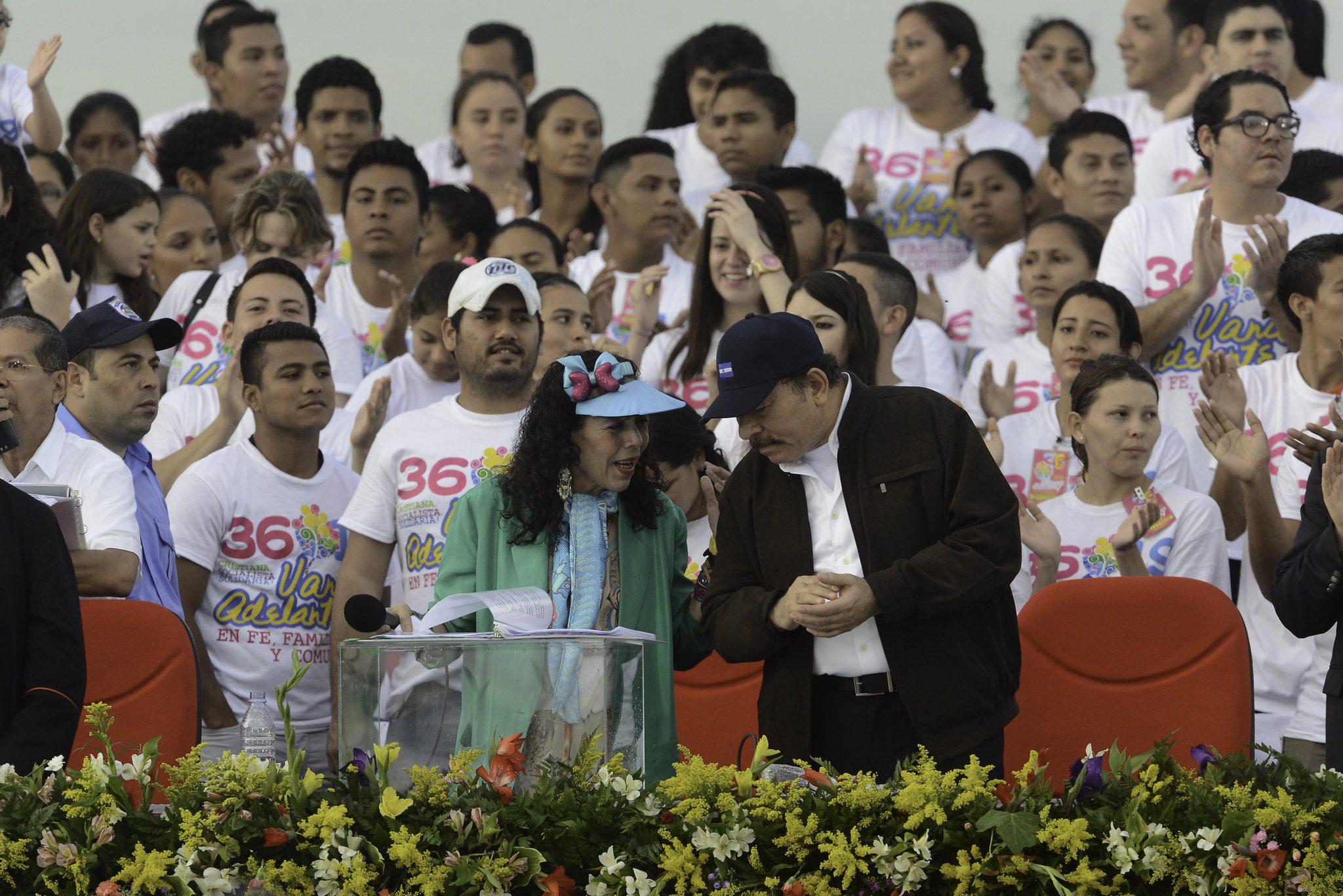
What is the regime’s strategy that you have identified regarding education in Nicaragua?
There is a general strategy which is to make people believe that everything is working wonderfully in Nicaragua and that this is a government that is making great changes and great transformations. With education, they are trying to give that same impression, that it is an advanced system and that they are implementing cutting edge and revolutionary measures in the educational field. However, the opposite is true. The regime creates a screen to cover up its faults.
For example, they revoke admission exams for universities, they order automatic promotion in schools, they force teachers not to give grades when the child has not reached the required goals. They forbid them from using red pens, all these maneuvers are part of a strategy to hide a reality that they do not want to change.
What is the objective of a dictatorship such as that of the Ortega-Murillo family in imposing an educational system in which those who don’t know are passed and the reds (failing grades) are eliminated from report cards?
The final goal is the perpetuation of power and, if possible, to make it look like a dynasty, that is to say, that it does not end with Daniel Ortega and Rosario Murillo, but that their children come after them. And obviously, in order to achieve this, they need people to be totally subdued, either by terror or mentally.
The fundamental requirement to be able to perpetuate a dictatorship of any kind, left or right, is people who don’t reason, people without critical capacity, people who have been deprived of the possibility of thinking, analyzing, discussing and who only blindly obey what those in power tell them.
The Sandinista Front was a political party that in the eighties, or at least that was the image it sold, had literacy and education as its banner and its referent was Carlos Fonseca with the iconic phrase “and also teach them to read”. What do you think has changed regarding the banner they took up at that time?
That was a screen. The issue of education obviously means much more than literacy. The discourse that there was going to be a massive literacy campaign to change the statistics we had in the times of the Somoza dictatorship, which were obviously scandalous, was a message that sold well, and was used for propaganda.
But, literacy was not enough. Afterwards we again had very high illiteracy figures and the main challenge of education, which is to give people the ability to think, analyze, discuss, identify problems, look for solutions to problems, was not solved by just identifying letters.
That obviously required a much more complex process of education that went much further than simply teaching people to read and write and basic arithmetic operations. And we never really achieved that in Nicaragua, because there were no concrete plans to really transform the entire educational system. In other words, apart from the great literacy campaign in 1980, the education plans were very vague. And afterwards the excuse was that because of the war it was not possible to fulfill the educational plans, but the truth is that those plans were never very concrete.
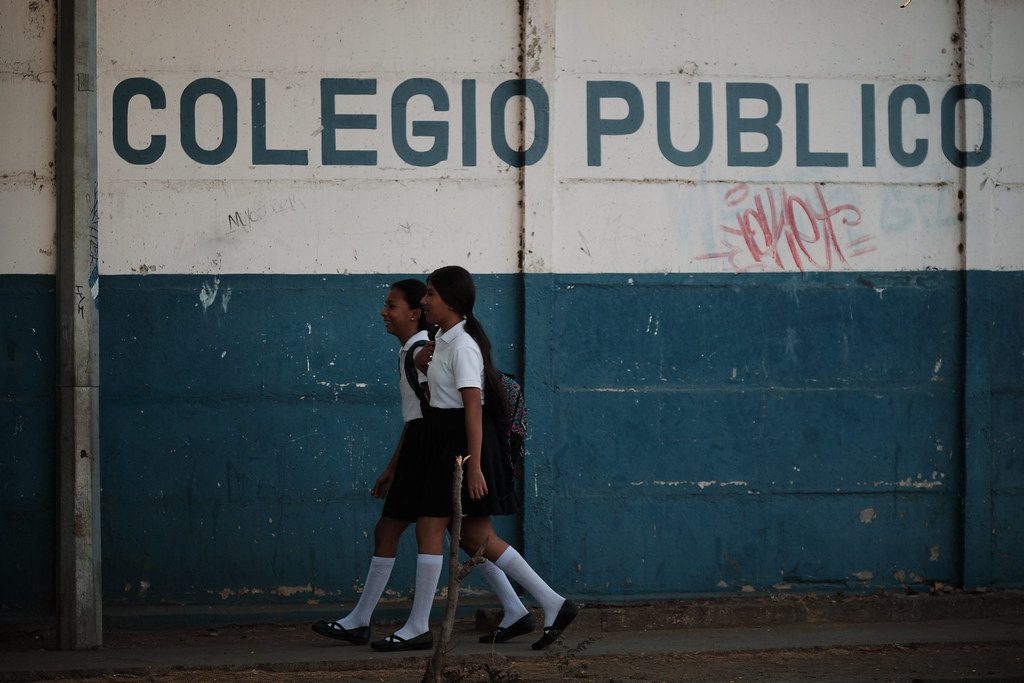
One of the regime’s achievements, which they themselves announce, is free education. Do you consider that this achievement is real or was it the product of a populist campaign because education is not entirely free?
The way it is presented is propaganda. Nothing is free, much less education. Someone is paying for education and obviously it is not the Ortega Murillo family, it is the Nicaraguans that are paying. Yes, there is a political will and this is positive. However, in reality, there are still a large number of children and young people of school age who don’t go to school. The free education they claim is not a solution, especially in the way it is being applied in the context of the Nicaraguan reality.
Free education is one thing, and the other is to ensure that not a single child is left out of school. But that has not been achieved in Nicaragua and this government has been unable to change that. And the reason why these children do not go to school is because the poverty in which they live is such that first, the family is not aware of the importance of education and does not make the necessary sacrifice for the child to go to school. And secondly, because that same poverty forces the family to make the children become part of the generators of the little income that allows the family to survive. And school is not one of the priorities.
Has this free education been transformed into educational improvements in the content or evolution of the education system?
No, that is part of the big problem. Free education is decreed, but there is still no real investment in schools. In other words, schools are still in a very precarious situation. There are no materials, teacher training is still very deficient. Teachers’ salaries are still insufficient for them to have a decent life and to be able to devote themselves to education, with all their love and effort. There is also no system to support teachers so that they can continue perfecting and improving their educational skills. This obviously has not happened and is not happening right now.
What is the difference between education under liberal governments and now under the Sandinista regime? I ask this because of that frequent comment among the population that in liberal times education was very good and now it is deficient.
We must recognize that there have always been problems. We have never had a really good, quality education, an education that really prepares girls and boys in Nicaragua, the youth of Nicaragua to face the future having the tools to do so. We have never achieved that.
I would say that the big difference between then and now is that, back then, the purpose was to give young people the tools to be educated, perhaps without these being the most appropriate and those that corresponded to the reality of the world they were living in.
Today, the real purpose of education is to indoctrinate people, to have people under control, without really caring if they are learning anything. In other words, there is no real concern for giving young people the tools to be able to look to the future with optimism, or to give the country the professionals or technicians that will make it possible for Nicaragua to face the enormous challenges it faces in the future. Now there is no will, no desire to prepare people for the future, but rather the main objective is to ensure that people do not think, do not criticize, do not speak, and that is the total perversion of the educational system.
The content of the textbooks is the best proof that the purpose of the educational system in Nicaragua today is not to train people to face a future where science and technology will continue to be the determining factors for development, but rather what the rulers are concerned about is that people are controlled, that they do not think, do not analyze, do not question. And for that you need the kind of books, the kind of teachers and the kind of education that we currently have in Nicaragua.
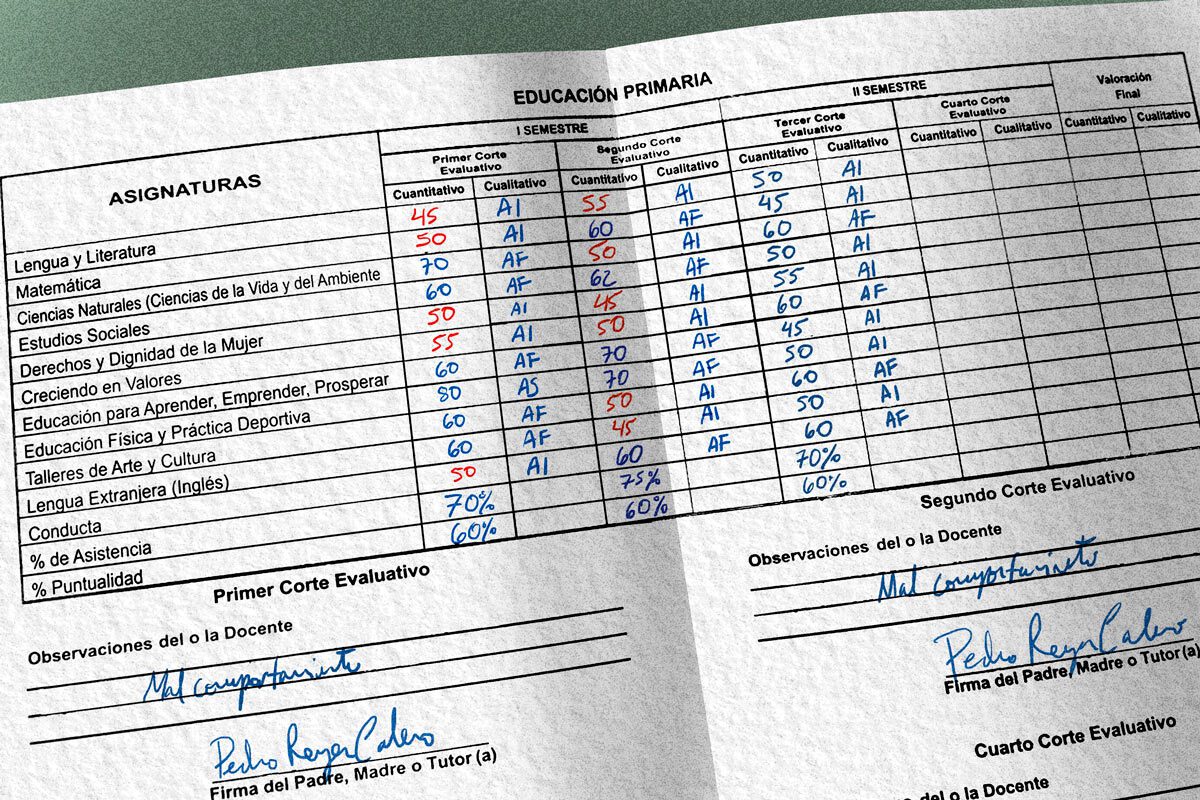
The research that we publish in DIVERGENTES reveals the forms of evaluation that the Ministry of Education promotes and that they force teachers to carry out. We talk about initiatives such as ‘Zero Reds’ and promoting students, even if they are not ready or prepared….
The Ministry of Education is implementing automatic promotion, so that no one shows up with red marks, under the assumption that it is the latest trend in modern pedagogy: children should not be subjected to the trauma of failing grades, they should not be given homework, and everything should be done at school. And these are the great debates that there are now about education, but they are debates that have to be located in each context.
To say that in Nicaragua we are ready for children not to be evaluated, not to be graded, not to be told that they do not have the level to be able to move up a grade, is absurd. We know that first of all, teachers do not yet have the capacity to work with children in such a way that at the end of the school year, they can analyze and say “look, this child has met the goals, the objectives that were set for the grade”.
This is not done in Nicaragua and teachers do not have the capacity to do it, nor is it well defined what the learning, aptitudes and degree of maturity that the child should develop are. There are no tools to measure this and teachers are not being prepared for this.
So, to want to establish a system that requires the existence of conditions for that is a fraud. And as I say, it is part of the propaganda, because what they are trying to sell us is that this is the latest and that Nicaragua is at the same level as Finland, Singapore, Hong Kong, the leading countries in education.
For many years you were the rector of two of the most important and prestigious universities in the country. Do you think that students with deficient high school education like the current one can pursue a university degree and become excellent professionals in Nicaragua?
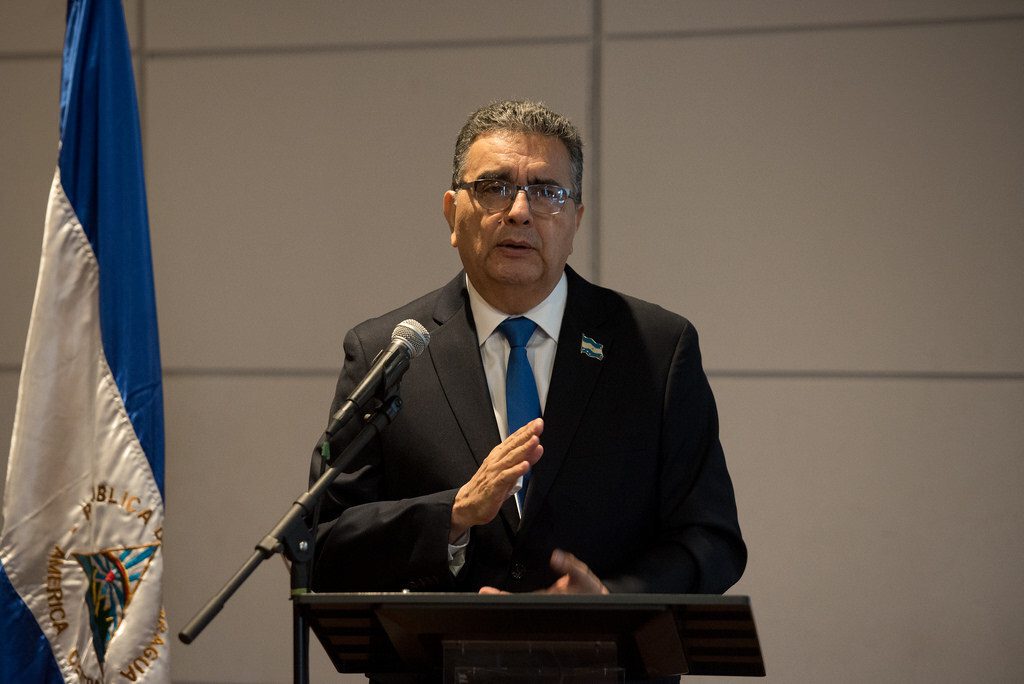
It is one of the great concerns I have. We have always had problems, because high school education in Nicaragua has suffered from many flaws and universities have always had to make efforts and invest time to compensate for the deficiencies of the students that arrive in the classroom. Obviously this has a cost for education and for the performance of young people. These problems have been exacerbated by government policies.
I can’t imagine now what the university would have to do to fill those gaps. The worst thing is that what they do, because they are forced to do it, is ignore it. And you can’t even know how bad the kids are, because they eliminated the admission test, which was one of the few measures that existed to know the students’ level.
No public or private university assumes the cost of recognizing that their students are poorly prepared, poorly trained, and that their professional skills are not going to be enough. So it is the young people who, when they leave, have to face the reality of not being hired, or when they are hired, they aren’t paid enough, because companies have serious doubts about their professional quality.
And what is the result for Nicaragua? We continue to produce the same as we did a century ago, with the same methods. We are incapable of innovating, of revolutionizing, of incorporating new techniques, because there are no people trained for that. But again, all this is hidden behind the discourse that we hear every day, that we are the most wonderful, most beautiful country in the world, that we live in peace, in harmony and that the Virgin and the Lord are with us and that, therefore, there is nothing to complain about.
What solution can be proposed to perhaps not improve at once, because we are still in a repressive context and tied to a regime that is not interested in change, but to take the first steps in the reconstruction of a functional educational model?
In Nicaragua we are obliged to change, that is, we have to change, we have to reestablish democracy, because only in democracy can we have these discussions. We obviously know that this is very difficult now and is not just around the corner. However, I believe that parents should raise their voices and demand that schools stop what they are doing with their children’s education. Let them approach the teachers, the principals, let them talk, discuss what they are doing to bring their children up to the level they are supposed to be at specific grades.
When they see teachers who are really good but are retiring, they should try to support them, ask them not to leave, and collaborate with everyone, including school authorities. They have to keep trying, and at least they have to keep expressing their concern. And a parent has all the authority to say look, something is not right here and we want to find a way to solve this. I believe that no parent is going to be happy knowing that their child is not being properly educated, that they are going to reach university unprepared and that, if they manage to get in and finish a degree, it will be just to have a nice diploma pinned on the wall.



